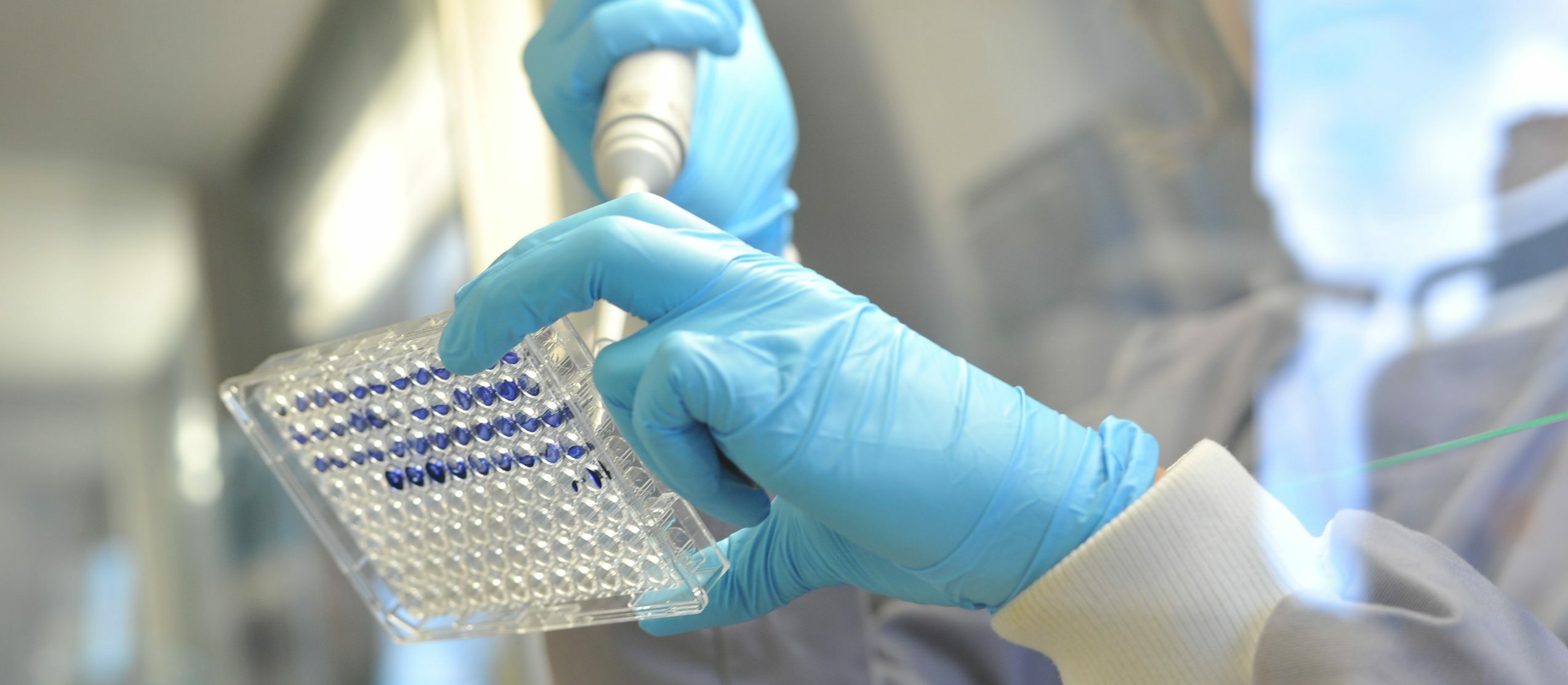
11 Jan 2019 Research
Lymphoma: Understanding relapse and treatment resistance
What is this research looking at?
Our immune system is remarkable. It is made up of many different types of immune cells that work together to protect the body from infection by pathogens such as bacteria, viruses and parasites.
We are investigating what happens when a certain type of cell in the immune system, known as B cells, starts growing out of control and develops into blood cancers such as leukaemia, lymphoma and myeloma.
We want to know what happens when B cells mature normally from precursor cells in the bone marrow and discover what has gone wrong when they turn into cancer cells instead.
Considerable success has been achieved in the treatment of lymphoma. However, a significant unmet need remains: roughly 40% of patients either do not respond to treatment or the condition recurs after treatment. Currently, our ability to predict which patients will fail treatment is poor.
By taking a detailed look at B cells as they develop and specialise, we can spot small groups of dangerous cells that are particularly likely to turn into cancer and identify the genetic faults that drive B cells to grow out of control.
We are using our knowledge to create new models for the development of B cells and blood cancers in the lab, so we can find new ways to treat or even prevent these deadly diseases.
Our research uses a model of lymphoma to test the response to treatments and development of resistance. A main advantage of the model is that we can interrogate these questions on a well-defined scenario and can perform iterative tests and predictions. Further, the model generated in this project will allow initial testing of novel treatments.
What could this mean for people with leukaemia?
This research could inform the medical decision of when to use combination and novel therapies for patients with a higher probability of developing resistance to standard treatment, alongside bringing safer treatments to patients.
Official project title: Development of a model system to study diffuse large B cell lymphoma clonal evolution
Related posts
11 February 2026
The National Cancer Plan: what does it mean for people with leukaemia?
The Government’s new National Cancer Plan for England, which launched on World Cancer Day 2026, marks the most significant progress in policy for leukaemia and other blood cancers in more…
25 May 2022
Leukaemia UK reveals new strategy to go further than ever to stop leukaemia devastating lives
Leukaemia UK has revealed a new strategy to go further than ever to save and improve more lives, through research, awareness and advocacy.
7 November 2022
Leukaemia UK appoints Ian McCafferty CBE as their new Chair of Trustees to support new strategy to stop leukaemia devastating lives
Ian McCafferty CBE will take up the role in January 2023, from current Chair of Trustees, Chris Corbin OBE, and will lead the charity as it continues to grow. Chris…
8 December 2023
Family ‘devastated’ by leukaemia after double diagnosis say ‘so much more needs to be done’
57-year-old Hampshire resident Karen Cracknell is supporting Leukaemia UK’s appeal for funds this Christmas, having experienced the ‘devastating impact’ after both her mother and father were diagnosed with blood cancer. …